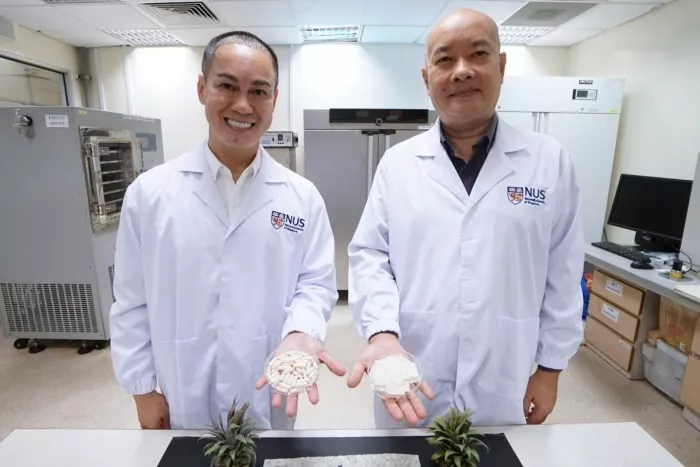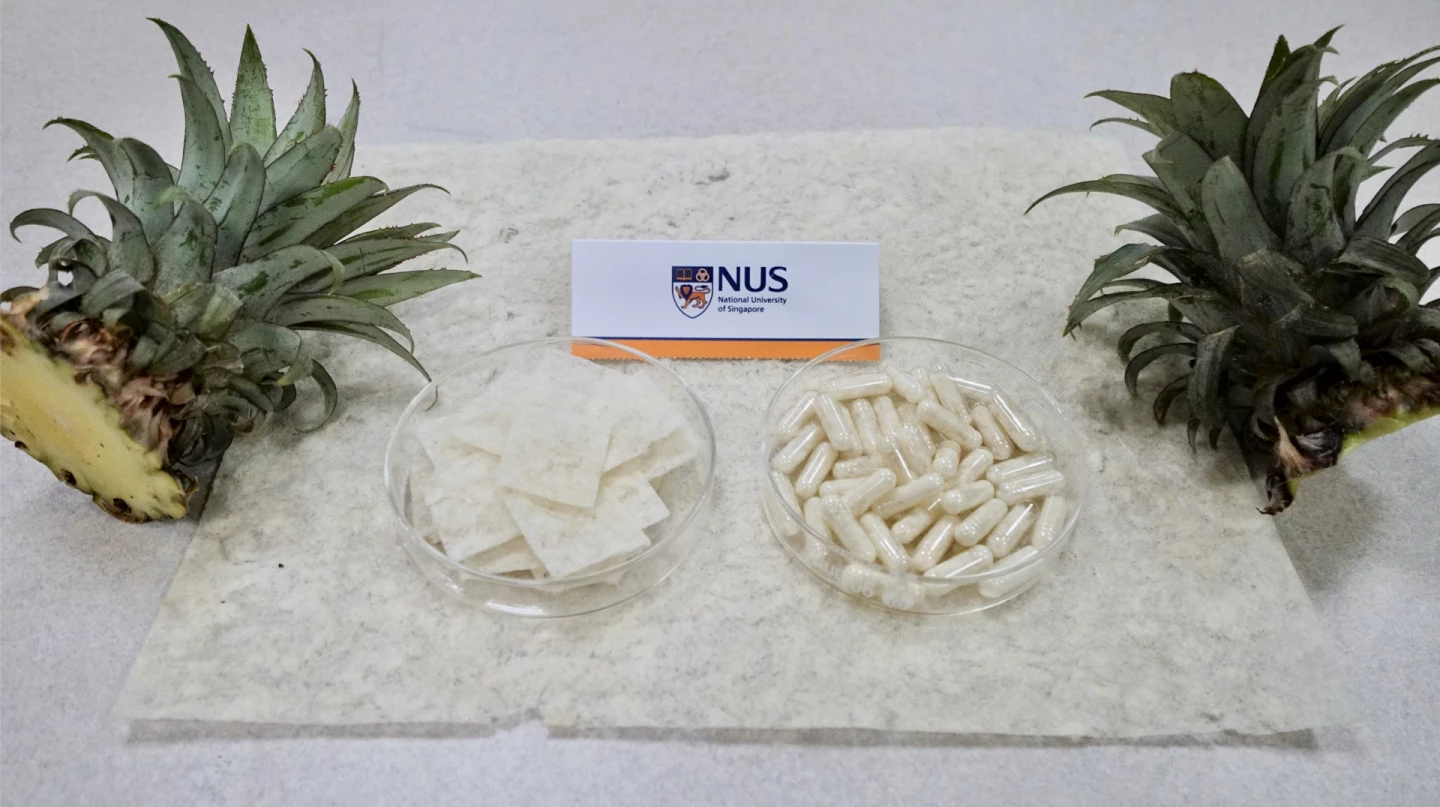
In this new study - led by associate professors Duong Hai Minh and Phan toan thang - researchers at the National University of Singapore (NUS) began by drying and grinding Pineapple leaves as agricultural waste.
When the resulting powder was tested in a laboratory system simulating the acidic environment of the human digestive tract, the researchers found that one gram of the substance could absorb 45.1 grams of fat. In order to make the powder easier to ingest, some of them are encapsulated and some are pressed into the form of thin biscuits.

"After ingestion, capsules or biscuits absorb fat compounds (such as animal fat) and form fat coated fiber blocks. These fat coated blocks will then be discharged from the digestive system within one to three days, similar to other foods we eat," Phan toan thang said
Although the mechanical properties of Pineapple leaves make them very suitable for this task, scientists say other types of high cellulose agricultural waste, such as sugarcane pulp, can also be used.
In other words, more research is needed to understand the effect of this powder in the actual human digestive tract. The university is currently seeking business partners to further develop the technology.